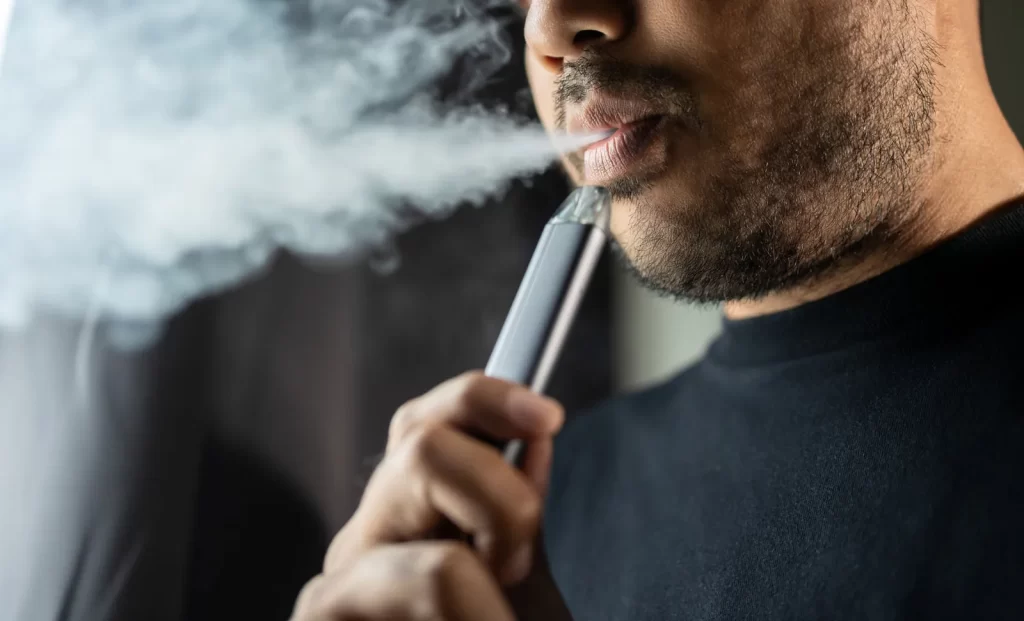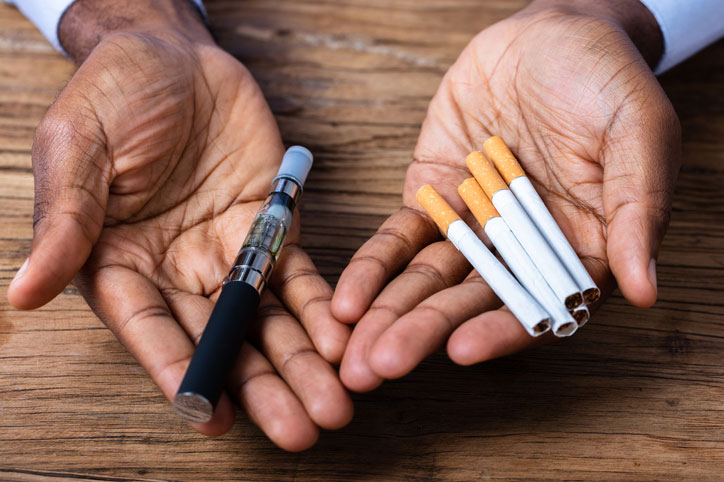Is Malawi ready to regulate vaping?
Vaping products intended to reduce illness from smoking combustible cigarettes are often mistaken as a tactic to entice youth and nonsmokers. Our contributor JOSEPHINE CHINELE explores whether Malawi is prepared to regulate safer nicotine products amid rising tobacco-related deaths.
As Malawi’s tobacco auction season winds down, a silent but urgent concern is emerging: the country’s lack of enforceable tobacco control policies for harm reduction.

The country exports truckloads of burley tobacco, some of which fuels next generation nicotine products like heated tobacco and vapes abroad.
However, little domestic discussion exists around protecting its own citizens from tobacco-related harm or supporting those trying to quit.
Increasingly, products like vapes and nicotine pouches are booming in informal markets nationwide, largely unregulated and beyond public health oversight.
With no law defining who can sell, buy, advertise or use these products, experts warn that this vacuum poses a public health risk.

The policy gap exposes users to unproven products and leave the youth and nonsmokers vulnerable through peer influence or unrestricted marketing, they warn.
“It’s difficult to talk about regulation or policy around harm reduction when the continent has no unified approach,” says regional tobacco control expert Dr Esthras Tlou Maloko. “Harm reduction is not well understood, so no policies exist. Where there are no laws, regulation becomes impossible.”
Low awareness
Low public awareness and limited access to smoking cessation support compound the problem.
Without coordinated education campaigns, clear policies or a structured harm reduction strategy, the country risks lagging in global nicotine technologies advance.
“Information is power,” says Dr Mercy Korir, editor-in-chief at Willow Health Media in Kenya. “There’s a huge disconnect. Health professionals might understand harm reduction, but journalists and the public don’t. We need authentic voices and proper training to bridge that gap so people can make informed choices.”
The World Health Organisation (WHO) reports rising smoking rates in sub-Saharan Africa—home to about 84 million smokers this year—despite declines in the developed countries.
Philip Morris International vice-president for sub-Saharan Africa Branislav Bibic says African countries must move beyond outdated tobacco control models and embrace scientifically backed harm reduction approaches.
“Informed consumers are recognising smoke-free products as better alternatives. We need to engage policymakers and local communities,” he said at the Technovation conference recently held in Cape Town, South Africa.
Safer alternatives
A 2021 study showed that e-cigarettes emit far fewer harmful chemicals than traditional cigarettes.
Researchers detected just 94 to 139 compounds in e-cigarette vapour, compared to thousands in combustible smoke.
Most major toxicants were found to be 68 percent to over 99 percent lower in vapour.
However, the researchers cautioned that lower exposure does not mean zero risk, as some potentially harmful substances remain and long-term effects are still under study.
Scientist Buhle Binta, says African governments need to treat tobacco harm reduction like HIV prevention as “people will engage in risky behaviours and harm must be minimised”.
She argues: “Just like condoms help reduce HIV transmission, alternative nicotine products can reduce harm for those who cannot quit smoking.
“Harm reduction is not a youth agenda. These products are for adult smokers who want to switch to less harmful alternatives. In countries where harm reduction is banned, illicit markets thrive. We need regulation that enables access to scientifically validated products for those who need them.”
Malawi’s situation
Malawi ratified the WHO Framework Convention on Tobacco Control (FCTC) in 2023, signalling its commitment to fight tobacco use.
However, enforcement of existing smoking and advertising bans remain weak.
The country also lacks policies to regulate the use of vaping and smokeless nicotine products on sale.
The government has introduced a 200 percent excise duty on electronic cigarettes and other smoking related products, classifying them as luxury items.
“This measure aims to curb accessibility, particularly among young people while reinforcing public health priorities,” Minister of Finance and Economic Affairs Simplex Chithyola Banda told Parliament during the 2025/2026 budget presentation.
He echoed WHO’s stance that both traditional and electronic tobacco products carry health risks and complete avoidance is the safest path.
However, harm reduction expert Sahani Lungu argues that the distinction between smoking and less harmful alternatives is lost on many in policymaking circles.
He states: “Due to the tobacco industry’s legacy of deceptive marketing, there’s deep mistrust.
“When new nicotine products are introduced, they’re often seen as ploys to addict more people, especially the youth,” Lungu notes.
He warns that some vaping designs, flavours and marketing that may appeal to the youth, further confuse efforts to target adult smokers.
Drug Fight Malawi executive director Nelson Zakeyu says the country’s policy vacuum enables the proliferation of illicit products.
“Quitting is always the best option, so we will continue advocating for cessation rather than alternatives,” he says, criticising the tobacco industry for sponsoring safer nicotine products.
“While data may be limited, we can build on what exists to develop targeted, evidence-based and scientific policies that reflect Malawi’s unique realities.”





